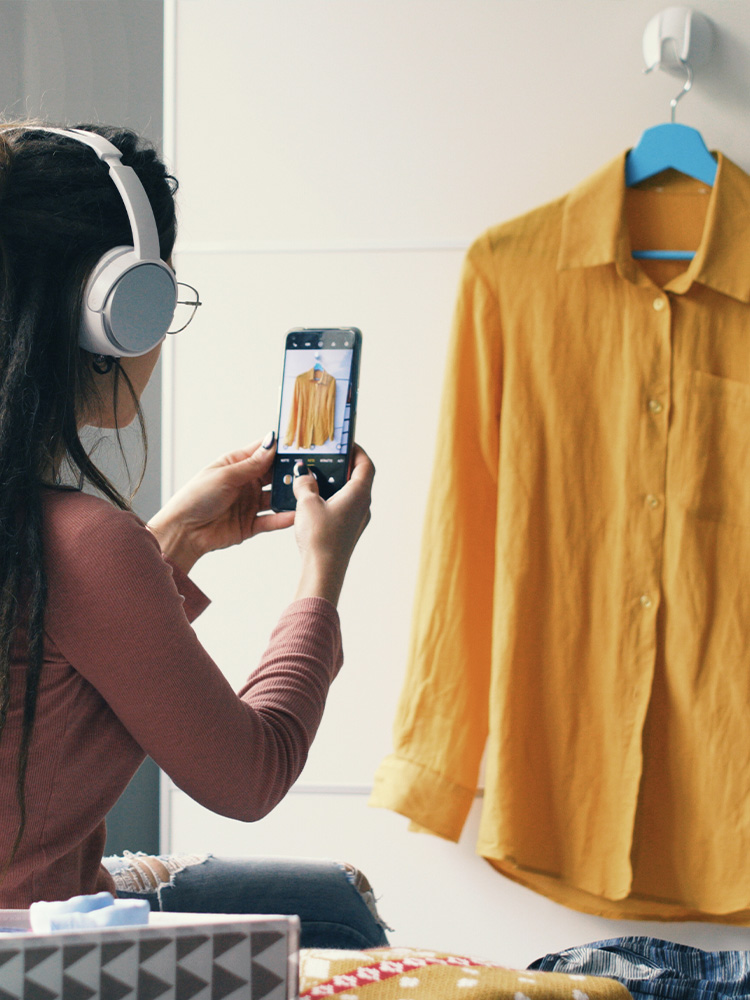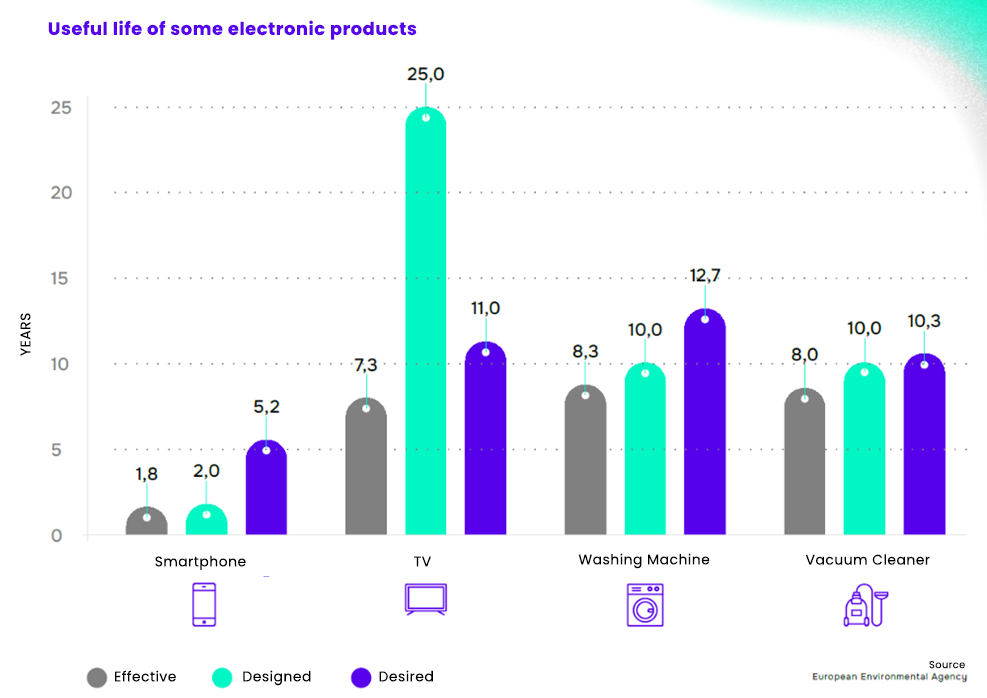Do you need an in-depth analysis to broaden your knowledge on sustainable consumption?
Find more details on emerging trends in the full report
by Intesa Sanpaolo Innovation Center - Innovation Intelligence
Emerging trends in the search for sustainable products and services
With the growing awareness of climate change and sustainability at 360 degress, sustainable consumers are increasing. Here's who they are and what sets them apart
What drives consumers towards sustainable choices
The growing concern of European citizens about climate change and the catastrophic consequences it implies (confirmed by Eurobarometer data colletcted 2023) is triggering a transformation in consumption patterns. The greater awareness of the importance of sustainability, in fact, pushes more and more people to actively participate in the ecological transition with the aim of accelerating it.
European Green Deal and Draghi Report: sustainability for EU competitiveness
Several governments - through programs such as the European Green Deal - are orienting their respective policies in this direction. It is no coincidence that Mario Draghi, in the report on EU competitiveness presented to the European Commission on 9 September 2024 entitled "The future of European competitiveness", highlighted the crucial role of sustainability in the EU economic strategy among the various suggestions proposed.
Sustainability is understood not only as an unavoidable environmental necessity, but also as a key factor for the economic competitiveness of the Old Continent. In this scenario, through sustainable daily choices consumers can accelerate this process.
The role of social media and "green influencers"
Awareness of the problem mainly comes from social media. According to a study conducted by Unilever (a British multinational consumer goods company that owns around 400 brands including food & beverage and household hygiene products), 75% of those interviewed are more inclined to adopt behaviors that help to protect the planet after having seen content of social media regarding sustainability.
From words of encouragement (green nudge) spreaded by greenfluencers and movements like Fridays for Future, consumers are progressively embracing an increasingly sustainable lifestyle. A well-known phenomenon in this sense is "deinfluencing", which encourages people to reduce unnecessary consumption and which has gained popularity thanks to TikTok and the famous phrase "You don't need this"


How sustainable consumers behave
Among sustainable behaviors, it emerges that the first concerns is the information and attention of consumers, who, when purchasing a product using technological devices, compare the prices and characteristics of what they intend to buy, also verifying the presence of labels and certifications that attest to its sustainability along the entire supply chain.
Consumers therefore increasingly want to know the origin of products, the materials used, the production processes and the environmental impact of the entire life cycle. It is also essential that data and information are certified by a third party, as consumer don’t trust in what is communicated directly by companies.
The sharing economy and sustainable mobility
Another behavior that is spreading linked to the growth of the sharing economy is the sharing of cars, bicycles (sharing mobility) and everyday objects. Choices that are not only cheaper than traditional ones, but also help reduce waste production.
Quality and durability: what changes in purchasing choices
Furthermore, in the context of the ecological transition, sustainability is no longer perceived as synonymous with renouncing quality for an ever-increasing number of people. Consumers, in fact, are looking for durable products, made with high quality materials, which can be used for a long time and, possibly, repaired, driven both by the desire to limit their environmental impact and by the need to contain costs in order to balance the book of family or individual ones.


Zero Waste Living: reducing waste in a sustainable way
Zero Waste Living refers to a lifestyle that aims to reduce waste, also through "radical" choices. Consequently, new purchases are avoided when they are not considered essential, and products are chosen to generate zero or minimal waste, also and above all with solutions that allow them to be reused several times.
What companies can do to meet the needs of sustainable consumers
Sustainability is the present of business. Practices that can lead to competitive advantage, retain customers and attract new investors are provided by detailed and verifiable sustainability information. According to a study conducted by Deloitte, 34% of consumers favor certified brands and 64% only trust in independent certifications.
In line with these elements it is possible to work on the durability of products, also to comply with European directives such as that on the right to repair which will come into force in 2026, but which presents several critical points and does not appear to be conclusive unless accompanied by other complementary regulations.
The circular economy in creating sustainable innovative products and services
It is worth remembering how the circular economy offers new opportunities to create innovative products and services, based on the reuse and recycling of materials. For example, through the recycling of fabrics, used garments can be transformed into new products. Furthermore, recycled fabrics can be used not only for other clothing, but also for furniture padding and sound insulation.
Technologies to support these processes include RFID (radio frequency identification) and integrated platforms to improve traceability and flow management. In addition to digital advances, chemical technologies are helping to improve the recycling of materials considered difficult to reuse or impure, for example through the use of organic solvents to remove polyester from mixed textile waste that would otherwise not be recyclable.
Innovating business models for enterprises
Furthermore, companies can innovate business models as done by the British cosmetics company Lush, which has eliminated packaging from some of its products. This creates space for new services, facilitated by digital platforms that bring together supply and demand for the sharing of resources between users, while electric vehicle or bicycle rental services offer flexible alternatives to ownership, contributing to the development of the sharing economy.
